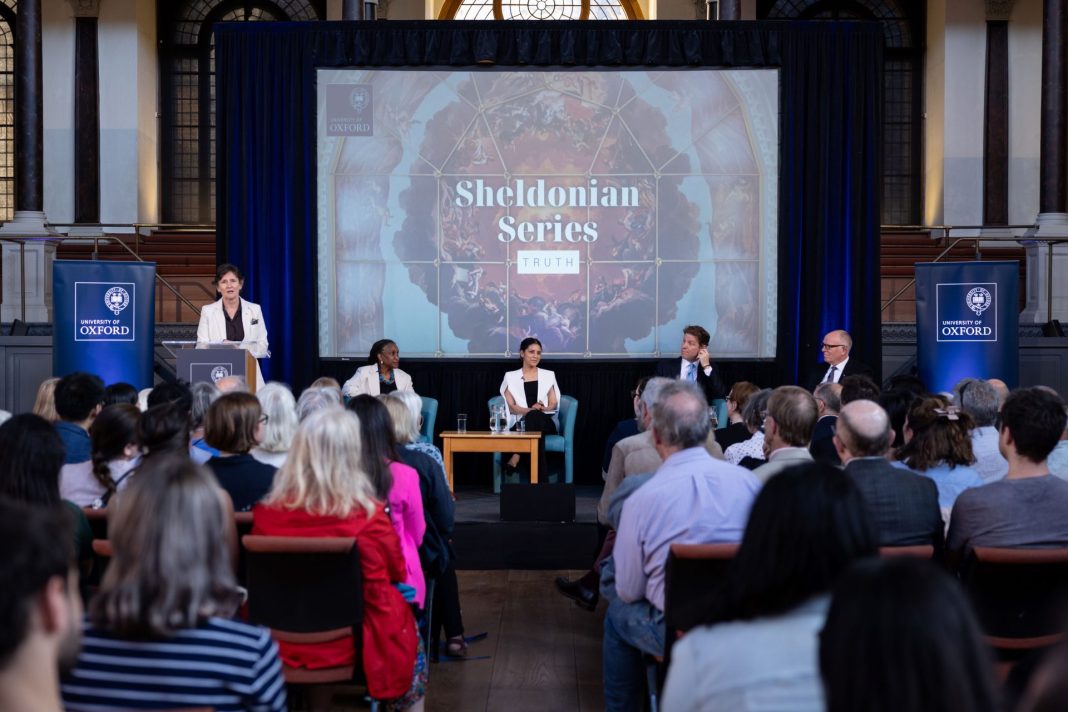Oxford University brought its Sheldonian Series to a close for the academic year with a panel discussion on the nature of “truth”, featuring Mitali Mukherjee, Professor Kimberly Johnson, and Fraser Nelson.
The event was moderated by Richard Ovenden, the University’s Head of Gardens, Libraries, and Museums (GLAM). Ovenden’s 2020 book, Burning the Books: A History of Knowledge Under Attack, explores the destruction of knowledge across history.
Professor Kimberly Johnson, a Visiting Professor of American Government at Oxford, brought a political science angle to the panel. Her research focuses on American and urban political development, as well as race and ethnic politics. She was joined by Mitali Mukherjee, who was named Director of the Reuters Institute last month, having led its Journalist Programmes since September 2022. She is a political economy journalist with experience working in TV, print, and digital journalism.
The third panellist was editor of The Spectator, Fraser Nelson. Under his editorship, The Spectator’s value increased fivefold, being sold for £100m when he stepped down last year. Nelson is currently a columnist for The Times and has previously presented documentaries for Channel 4.
Discussion ranged from definitions of the truth, to the responsibilities of the media and public institutions. Unsurprisingly, references to the Trump administration and the COVID-19 pandemic loomed large, and all three speakers pointed to these as moments where the concept of truth had come under strain. Mukherjee, however, pointed out that misinformation is far from a new phenomenon, though it may feel existential at this moment in history.
Public engagement with journalism was another central theme. Nelson observed that the reach of traditional print media has somewhat shrunk, no longer ranking among the most widely sought after sources of news. He argued that those still paying for high-quality journalism tend to be wealthier and older, highlighting a divide in how different audiences are able to access reliable information. Mukherjee added that younger people often turn to social media for news, prompting questions about how trust is built on those platforms, and the extent to which news organisations must meet social media users in the middle.
The conversation also turned to the role of universities in shaping or defending truth. Johnson noted that academic institutions often become arenas for conflicting personal truths that are held with equal conviction. Mukherjee echoed this sentiment, recalling a conversation with the Vice-Chancellor about the importance of listening to students and engaging with their interpretations of truth, rather than imposing a single narrative.
The session ended with questions from the audience, with these ranging from whether young people should be more comfortable with formal means of truth seeking, like using the Freedom of Information Act, to the ways in which news outlets should restore public trust in a “post-truth society”.
In her closing remarks, the Vice Chancellor looked forward to Michaelmas, when the Sheldonian Series will continue; she urged the audience to share their ideas for future topics of discussion, and reflected on the success of the Series this academic year.


